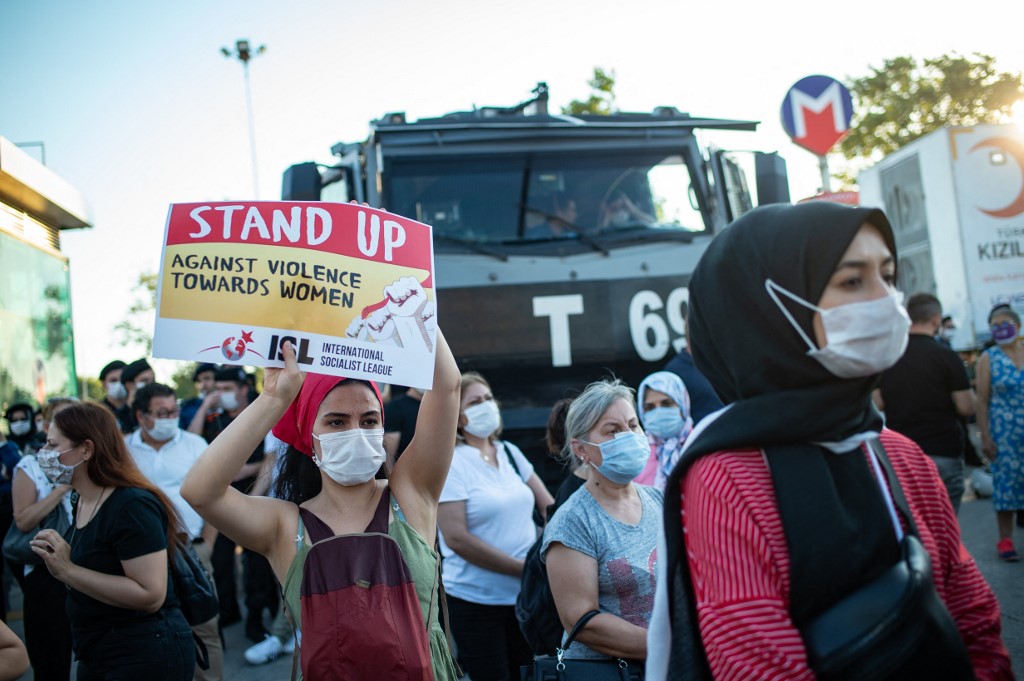Osman Çallı, a Turkish man who was sentenced to life in prison in Belgium for the murder of four women and seriously injuring two others in 2004, was extradited to Turkey in 2013 and freed six years later, BBC Turkish service reported on Tuesday.
On Nov. 11, 2004, Çallı shot to death his 25-year-old wife Teslime and 19-year-old sister –- who was pregnant at the time -– in Ghent, and his ex-wife and mother-in-law -– who are Belgian –- in Aalst, in addition to seriously injuring two men, one of whom was reportedly targeted for having an affair with his wife.
Çallı then turned himself in, telling police in Belgium that he had “restored” his family’s honor, according to BBC.
Following a four-year trial, Çallı was given a life sentence.
After spending five years behind bars, he applied to be extradited to Turkey and serve the remainder of his sentence there. He was sent back on June 28, 2013.
Çallı was released on parole on Nov. 10, 2019 and became completely free in 2020, BBC said, citing his lawyer Ergun Top, who explained that an inmate can be released in Turkey after serving two-fifths of their sentence.
Top also refuted claims reported by Belgian media that Çallı was released under a law adopted by President Recep Tayyip Erdoğan’s Justice and Development Party (AKP) government in April 2020 to release thousands of inmates to ease overcrowding in jails and protect detainees from the coronavirus.
The legislation drew harsh criticism from opposition parties and rights groups for excluding thousands of political prisoners, including journalists, lawyers, politicians and rights activists swept up in a crackdown following a coup attempt in 2016.
Although Belgium’s Justice Ministry demanded an explanation from Turkish authorities on Çallı’s situation, they haven’t received one yet, BBC said.
Çallı was sent to Turkey according to the Convention on the Transfer of Sentenced Persons, which stipulates that the sentence of the convict should be converted into the laws of the country to which he was sent and that that country is required to inform the other country of the way the sentence is applied and of a possible release.
However, this is not the case for Turkey. Sharon Beavis, a spokeswoman for the Justice Ministry, told Belgian newspaper Nieuwsblad that Belgium had no influence on the penal procedures regarding Çallı after his extradition to Turkey.
Christoph D’Haese, a Belgian politician and lawyer for Henri De Cooman, –- one of the men seriously injured by Çallı back in 2004 –- said it was “shameful and incomprehensible” for Çallı to walk free in Turkey while was supposed to serve a life sentence in Belgium.
Speaking to Belgian television channel VTM, 63-year-old Çallı said he was enjoying himself in Turkey after serving 15 years in prison.
“I’ve started a new life here. I’m going to have a son soon. I just want to be left alone,” Çallı told VTM.
Gender-based violence is a serious problem in Turkey where the male perpetrators mostly avoid punishment or are given lighter sentences. According to a report published in March 2021 by Sezgin Tanrıkulu, a human rights defender and Republican People’s Party (CHP) lawmaker, nearly 7,000 women were victims of femicide during the 18 years that the Justice and Development Party had been in power.
Despite public outrage, President Erdoğan issued a decree on March 20, 2021 withdrawing Turkey from the İstanbul Convention, the Council of Europe’s (CoE) binding treaty to prevent and combat violence against women.



